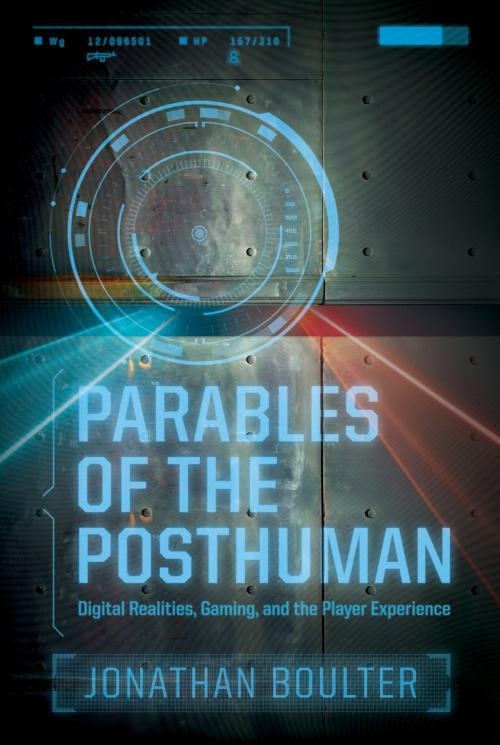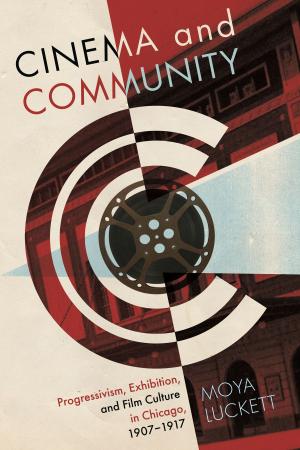Parables of the Posthuman
Digital Realities, Gaming, and the Player Experience
Nonfiction, Religion & Spirituality, Philosophy, Phenomenology, Entertainment, Games, Video & Electronic, Computers, Entertainment & Games, Video & Electronic Games| Author: | Jonathan Boulter | ISBN: | 9780814341445 |
| Publisher: | Wayne State University Press | Publication: | October 12, 2015 |
| Imprint: | Wayne State University Press | Language: | English |
| Author: | Jonathan Boulter |
| ISBN: | 9780814341445 |
| Publisher: | Wayne State University Press |
| Publication: | October 12, 2015 |
| Imprint: | Wayne State University Press |
| Language: | English |
In its intimate joining of self and machine, video gaming works to extend the body into a fluid, dynamic, unstable, and discontinuous entity. While digital gaming and culture has become a popular field of academic study, there has been a lack of sustained philosophical analysis of this direct gaming experience. In Parables of the Posthuman: Digital Realities, Gaming, and the Player Experience, author Jonathan Boulter addresses this gap by analyzing video games and the player experience philosophically. Finding points of departure in phenomenology and psychoanalysis, Boulter argues that we need to think seriously about what it means to enter into a relationship with the game machine and to assume (or to have conferred upon you) a machinic, posthuman identity. Parables of the Posthuman approaches the experience of gaming by asking: What does it mean for the player to enter the machinic "world" of the game? What forms of subjectivity does the game offer to the player? What happens to consciousness itself when one plays? To this end, Boulter analyzes the experience of particular role-playing video games, including Fallout 3, Half-Life 2, Bioshock, Crysis 2, and Metal Gear Solid 4. These games both thematize the idea of the posthuman—the games are “about” subjects whose physical and intellectual capacities are extended through machine or other prosthetic means—and also enact an experience of the posthuman for the player, who becomes more than what he was as he plays the game. Boulter concludes by exploring how the game acts as a parable of what the human, or posthuman, may look like in times to come. Academics with an interest in the intersection of philosophy, psychoanalysis, and popular culture forms and video gamers with an interest in thinking about the implications of gaming will enjoy this volume.
In its intimate joining of self and machine, video gaming works to extend the body into a fluid, dynamic, unstable, and discontinuous entity. While digital gaming and culture has become a popular field of academic study, there has been a lack of sustained philosophical analysis of this direct gaming experience. In Parables of the Posthuman: Digital Realities, Gaming, and the Player Experience, author Jonathan Boulter addresses this gap by analyzing video games and the player experience philosophically. Finding points of departure in phenomenology and psychoanalysis, Boulter argues that we need to think seriously about what it means to enter into a relationship with the game machine and to assume (or to have conferred upon you) a machinic, posthuman identity. Parables of the Posthuman approaches the experience of gaming by asking: What does it mean for the player to enter the machinic "world" of the game? What forms of subjectivity does the game offer to the player? What happens to consciousness itself when one plays? To this end, Boulter analyzes the experience of particular role-playing video games, including Fallout 3, Half-Life 2, Bioshock, Crysis 2, and Metal Gear Solid 4. These games both thematize the idea of the posthuman—the games are “about” subjects whose physical and intellectual capacities are extended through machine or other prosthetic means—and also enact an experience of the posthuman for the player, who becomes more than what he was as he plays the game. Boulter concludes by exploring how the game acts as a parable of what the human, or posthuman, may look like in times to come. Academics with an interest in the intersection of philosophy, psychoanalysis, and popular culture forms and video gamers with an interest in thinking about the implications of gaming will enjoy this volume.















